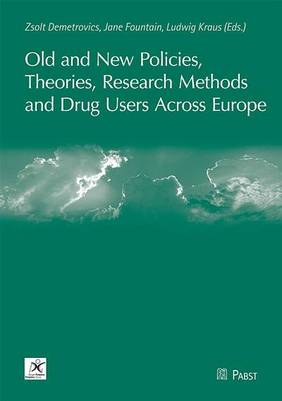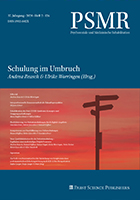"People in prisons are disproportionally affected by drug dependence, bloodborne virus infections and other diseases as compared to the population outside of prison. Despite the research evidence demonstrating the need and effectiveness of harm reduction programmes in prisons, and despite the multiple international guidelines recommending their implementation, politicians, prison staff, and professionals in many countries are still resistant to implementing these essential public health measures," Professor Dr. Heino Stöver (Frankfurt/Main) criticises in the study "Harm reduction in European prisons".
The arguments of responsible professionals range from a complete denial of a drug problem in prison to the belief that ´everything is under control´.
"The poor understanding of the nature of drug use contributes to a widespread assumption that opioid dependence could be effectively interrupted for the time of imprisonment, which in turn supported the belief that prisons can be maintained as drug-free zones. This perception is often entrenched as a result of anecdotal experience, as many prisoners appear to improve their health and weight dramatically in a very short period of time after incarceration, and ´look healthier than they arrived´. However, a structured day-night rhythm, as well as regular meals, are often more responsible for these physical changes than is overcoming drug dependence.
Many officials think of drug dependence as a phenomenon that flowes from hedonistic impulses, rather than as a disease or a behaviour that comes from a need to manage cravings or withdrawal, or to occasionally experience the familiarity of drug use. As a result of this thinking the consequences of coercive abstinence in prison settings are not recognised by prison officials. The consequences include relapses immediately upon release, often resulting in overdose, drug emergency cases and death. Indeed, there is a twenty to fifty fold increase of drugrelated deaths in the first week after release, dropping by 50% per week ..."
Literature on the subject:
Old and New Policies, Theories, Research Methods and Drug Users Across Europe
Demetrovics, T.; Fountain, J.; Kraus, L. (Eds.)






















